Reporting changing climate from an African perspective
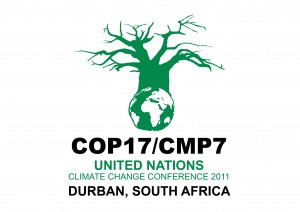 From desertification in the north to floods in the south, from famine to the spread of malaria: Africa is a continent already heavily affected by phenomena attributed to climate change. Yet Africa’s contribution to greenhouse gas emissions driving the process is minimal and the discussion around climate change is often focused on industrialized countries.
From desertification in the north to floods in the south, from famine to the spread of malaria: Africa is a continent already heavily affected by phenomena attributed to climate change. Yet Africa’s contribution to greenhouse gas emissions driving the process is minimal and the discussion around climate change is often focused on industrialized countries.
At the United Nations Climate
Change Conference (COP17) starting in Durban on November 28, DW-AKADEMIE will be supporting radio journalists to offer an African perspective on climate change for their local listeners.
The two-week workshop Reporting Climate Change will bring together journalists from eight countries: Ethiopia, Ghana, Kenya, Mozambique, Namibia, Nigeria, Tanzania and Zambia. The participants are experienced radio reporters who have taken part in previous DW-AKADEMIE courses. From Durban they will produce news reports on the latest developments at the conference and provide detailed background information on the topic of climate change.
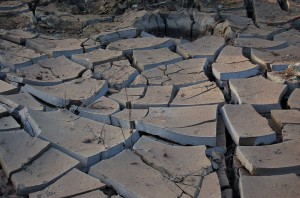 Working closely with the Heinrich Böll Foundation, Bush Radio from Cape Town and the United Nations Framework Convention on Climate Change (UNFCCC), the Reporting Climate Change workshop intends to give the journalists a head start on their research. Plans include a visit to a project site of the Clean Development Mechanism (CDM), a meeting with delegates from African countries and participation in panel discussions with experts of the UNFCCC.
Working closely with the Heinrich Böll Foundation, Bush Radio from Cape Town and the United Nations Framework Convention on Climate Change (UNFCCC), the Reporting Climate Change workshop intends to give the journalists a head start on their research. Plans include a visit to a project site of the Clean Development Mechanism (CDM), a meeting with delegates from African countries and participation in panel discussions with experts of the UNFCCC.
DW-AKADEMIE project managers Aarni Kuoppamäki and Marc Seidel will be in Durban to lead the workshop and reports from participants will be featured on our blog in December.
(Photo credit: Flickr user Matt and Kim Rudge, some rights reserved)
Power and potential of social media in South Africa
Sarah Britten is a South African communication strategist, blogger, journalist, author and a contributor to Memeburn, a website devoted to digital trends. She is particularly interested in new media and how technology and media can work together for development. DW-Akademie’s Franziska Harich met Sarah at the recent Forum Medien und Entwicklung Symposium 2011 (FoME) in Bonn and asked her about social media in South Africa and the proposal of the African National Congress (ANC) to create a government appointed media appeals tribunal – a move that has been widely criticised by South African media.
![]() read more
read more
Getting ready for the Young Media Summit in Tunis!
If you’ve been checking out our Facebook page you would of course know that the Young Media Summit in Tunis is coming up later this month: 28 – 30 November.
DW-AKADEMIE in cooperation with Kalima and Nawaat have invited 30 young bloggers from Tunisia, Marocco, Algeria, Libya, Mauritania and Germany to discuss the political situation in the region, the role of bloggers and social media, and the quality standards of online-reporting.
We are very much looking forward to hearing directly from bloggers in Tunisia and Libya about their experiences during the uprisings in their countries.
The Young Media Summit will also cover: ethics in new media, safety and security of bloggers in times of crisis as well as project funding for citizen media.
To find out more about our participants, keep checking the YMS Facebook page, the YMS Twitter feed and of course here on our blog to follow the events at the conference.
Six tips for selecting powerful voice clips
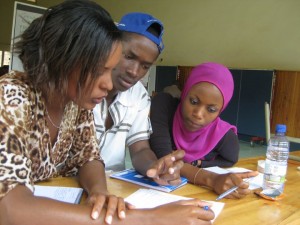 Sound clips make a story livelier, more interesting and more authentic. But not all voice clips are good and make sense. Before you use a sound clip, you should consider whether it will truly provide users or listeners with new insights.
Sound clips make a story livelier, more interesting and more authentic. But not all voice clips are good and make sense. Before you use a sound clip, you should consider whether it will truly provide users or listeners with new insights.
In practice, some “golden rules” for using voice clips have evolved:
1. Voice clips should be unique.
Sound clips make sense if they contain at least one of the following:
* Strong feelings
* Expressions of opinion
* Humor/wit
* Something about the personality of the interviewee
* Eye witness reports
* Historical sound documents
![]() read more
read more
African Stories on the move in Tunisia!
In recent months we’ve kept track of the African Stories training workshops that have been conducted around the continent with partner African TV broadcasters. And recently the first television co-production feature with DW-TV has been broadcast on the Global 3000 programme.
A team from the Tunisian broadcaster Télévision Tunisienne took on a very hot topic: rappers and their role during the revolution in Tunisia.
Check out it and let us know what you think!
Produced by:
Taha Jemai (Reporter)
Amine Ben Ahmed (Camera)
Ali Addala (Video Editor)
East4South: Subjective Ugandan Dictionary
The East4South programme brings together young journalists from Eastern Europe with experienced journalists from Africa to produce stories together. Now in its third cycle, 10 Eastern European journalists are about to travel to Africa in the next few months to work with their African counterparts.
Balazs Simonyi is a freelance Hungarian photojournalist and filmmaker. Through the East4South programme he travelled to the Gulu district in northern Uganda and to Mayuge in the south-east where he worked with Joshua Kyalimpa on two video stories. One was about rehabilitation of former child soldiers, the other examined fishing and how fish caught in Victoria Lake end up on European dinner tables.
Author: Guy Degen
Lessons learned from multimedia workshops
 Every multimedia workshop differs from the next, but the lessons learned by the participants are always very similar. One thing is certain: You need patience and perseverance.
Every multimedia workshop differs from the next, but the lessons learned by the participants are always very similar. One thing is certain: You need patience and perseverance.
It also helps to stay calm and collected when learning to use the tools and technologies. It’s much like long-distance running. You start out full of confidence and high expectations, then lactic acid builds up in your muscles. Suddenly you feel like you’re reaching a dead end, frustration and exhaustion make you want to throw in the towel. Rage rises up, causing you to ask yourself why you even bother. But in the end, when you’ve achieved your goal and you click that “publish” button, you feel a rush of satisfaction.
Like any kind of creative activity, working with multimedia can stir up emotions and fray your nerves. But it doesn’t have to be stressful. Follow these tips to stay nicely on top of your multimedia work without losing your head.
Don’t overdo it!
The Internet has unlimited possibilities. The temptation is huge to exhaust all those possibilities. That’s not always to the benefit of the user. And the user is the main point to keep in mind.
Multimedia projects are often overloaded, bursting at the seams with (sometimes sub-optimal) video, audio and photographic footage. Driven by their excitement about the technical potential, authors can easily lose sight of the actual story they’re trying to convey. Just think of the endless audio-video slideshows with thinly told stories and so-so orchestration, the masses of blurry photos and unsteady video clips.
Bear in mind your own capabilities and keep an eye on your time management.
![]() read more
read more
“C’est un travail de groupe”
Ecoutez ci-dessous Bineta, Aminata et Khady!
Interview Sénégal by dwakademie
Film à voir prochainement sur notre blog!
Latest African Stories workshop in Ghana
Check out the latest videos from African Stories in Accra:
It’s a dirty but lucrative business. Solomon Tetteh works in the waste processing sector in Accra. He holds a university degree, but Solomon was not able to find a job. At first, his friends were not really supportive when he dreamed about building up his own business. Now, a year later, he is not only self-employed, he has also managed to create jobs for several garbage men, giving them the opportunity to support their families. Solomon also promotes environmental awareness in Ghana by distributing free garbage cans in schools. He wants young people to learn early how to separate garbage, and leave the land clean.
Social inequality, a sense of hopelessness in the face of poverty as well as crime drives more and more young people in Africa to use illegal drugs. Richard Armah was one of them. After years of drug abuse, he found the strength to free himself from addiction. Now, as a social worker, he is committed to help addicts from the poorest areas of Accra to say “no” to drugs. He’s been successful, even though his financial means are insignificant. Richard’s approach is preventive: educate people, so they don’t succumb to the temptation of drugs in the first place.
Asidu Abudu is an inspired inventor. A man who wants to make change for the better. Asidu wants to make life easier for his countrymen by creating small and effective devices for everyday use. He believes he has a competitive advantage over foreign inventors because he is more familiar with the needs of the country and its people. His main obstacle is funding. It is difficult to get, and there is not much of it. But this doesn’t stop him from pursuing his dream of going into mass production. In the meantime, he has managed to find some investors, and more and more young people who want to learn from him.
Cassava could help defeat hunger in Africa. Dr. Tay Nanam Dziedzoave is convinced that a great variety of products can be developed from a new high-quality type of cassava. Dr. Dziedzoave joined forces with several local NGOs to convince farmers to grow this new variety. He also helps them to sell the product and increase their income. And Dr. Dziedzoave is also working hard to convince the Government of Ghana that his ideas are worthwhile.
Reporting climate change in Vietnam and in Germany
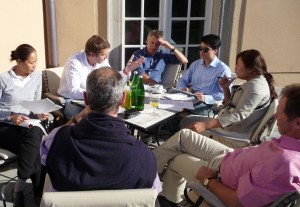 How can the media cover climate change? How do Vietnamese journalists report the topic in their country’s media and how do German journalists cover it for German audiences?
How can the media cover climate change? How do Vietnamese journalists report the topic in their country’s media and how do German journalists cover it for German audiences?
These were the key questions for the first German-Vietnamese Media Dialogue in late September 2011. Journalists from different media in both countries got together to discuss the issue in Germany. The German Federal Foreign Office had invited them to the four-day event, providing a forum for discussion, presentations and excursions. DW-AKADEMIE and GIZ-AgenZ planned and organized the event.
There are key differences in how journalists in both countries can cover environmental issues and the effects and causes of climate change. Vietnam is one of the countries worst affected by the impacts of climate change: It has a coastline of more than 3,000 kilometers and is experiencing an increase in typhoon activity, heavy rains and dry spells.
![]() read more
read more





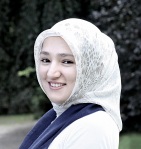
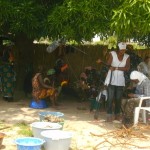
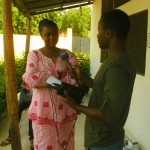




Feedback